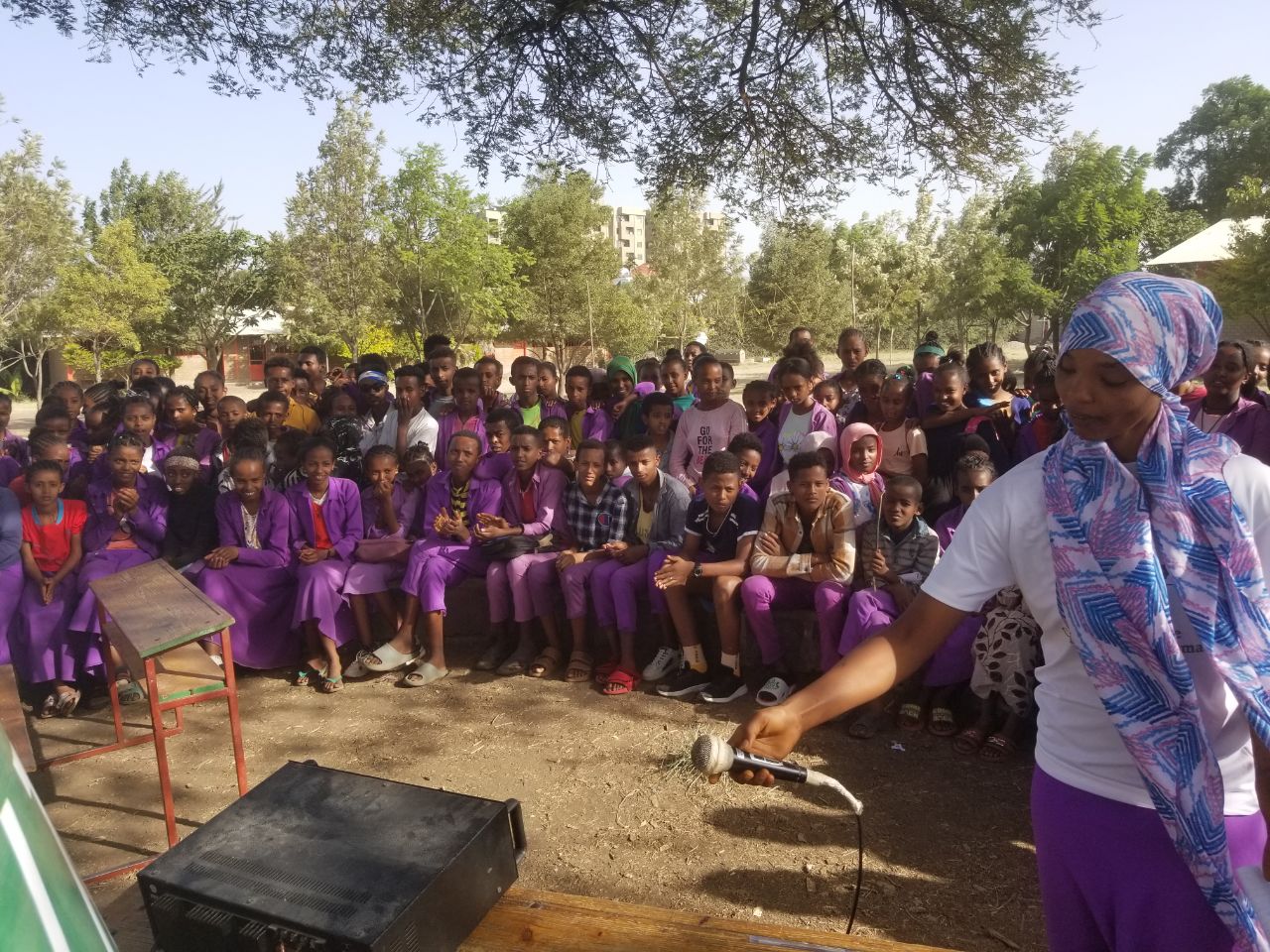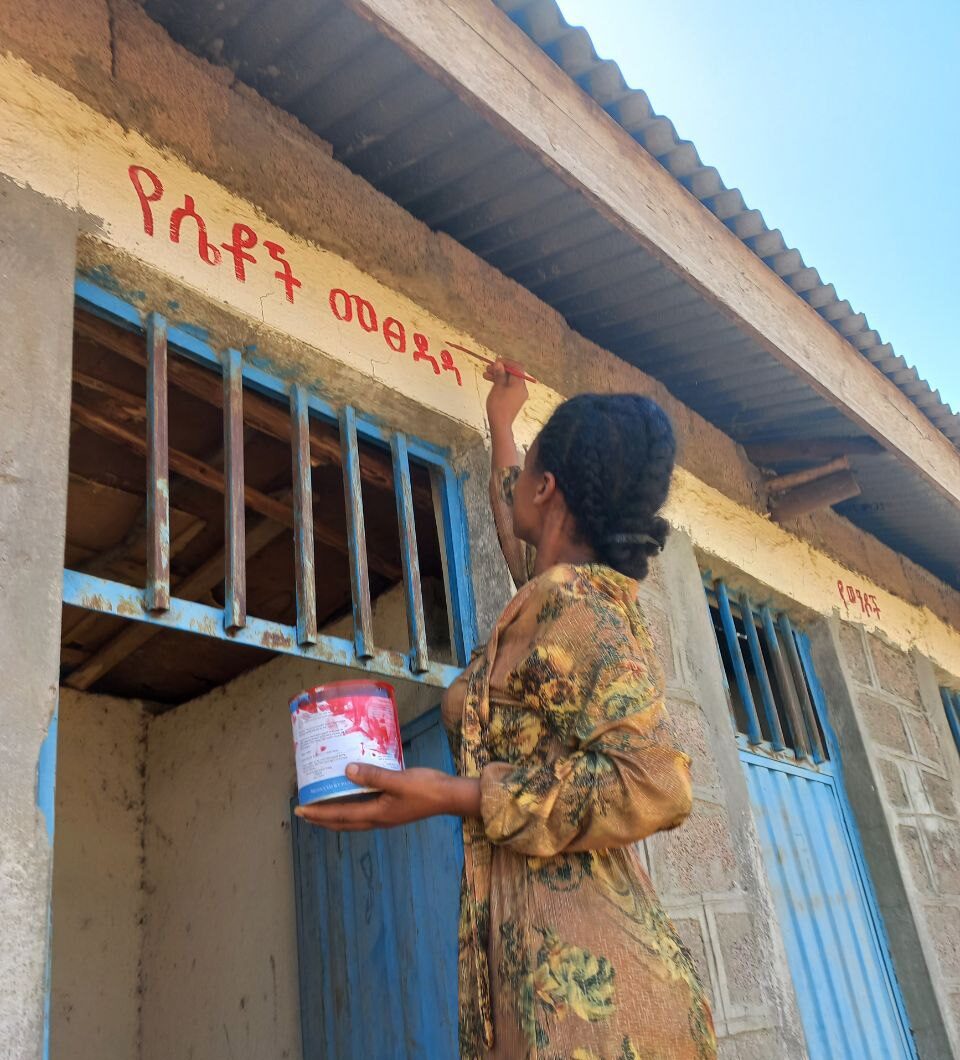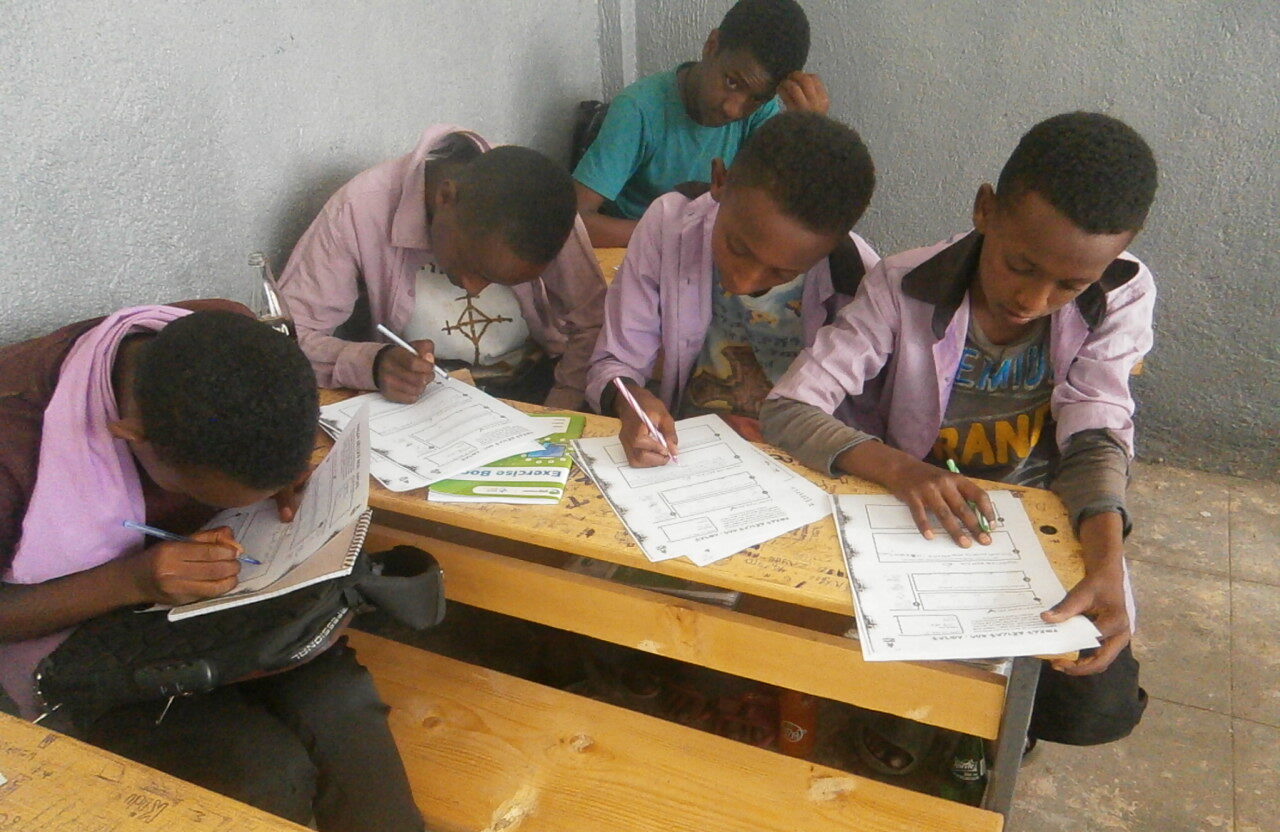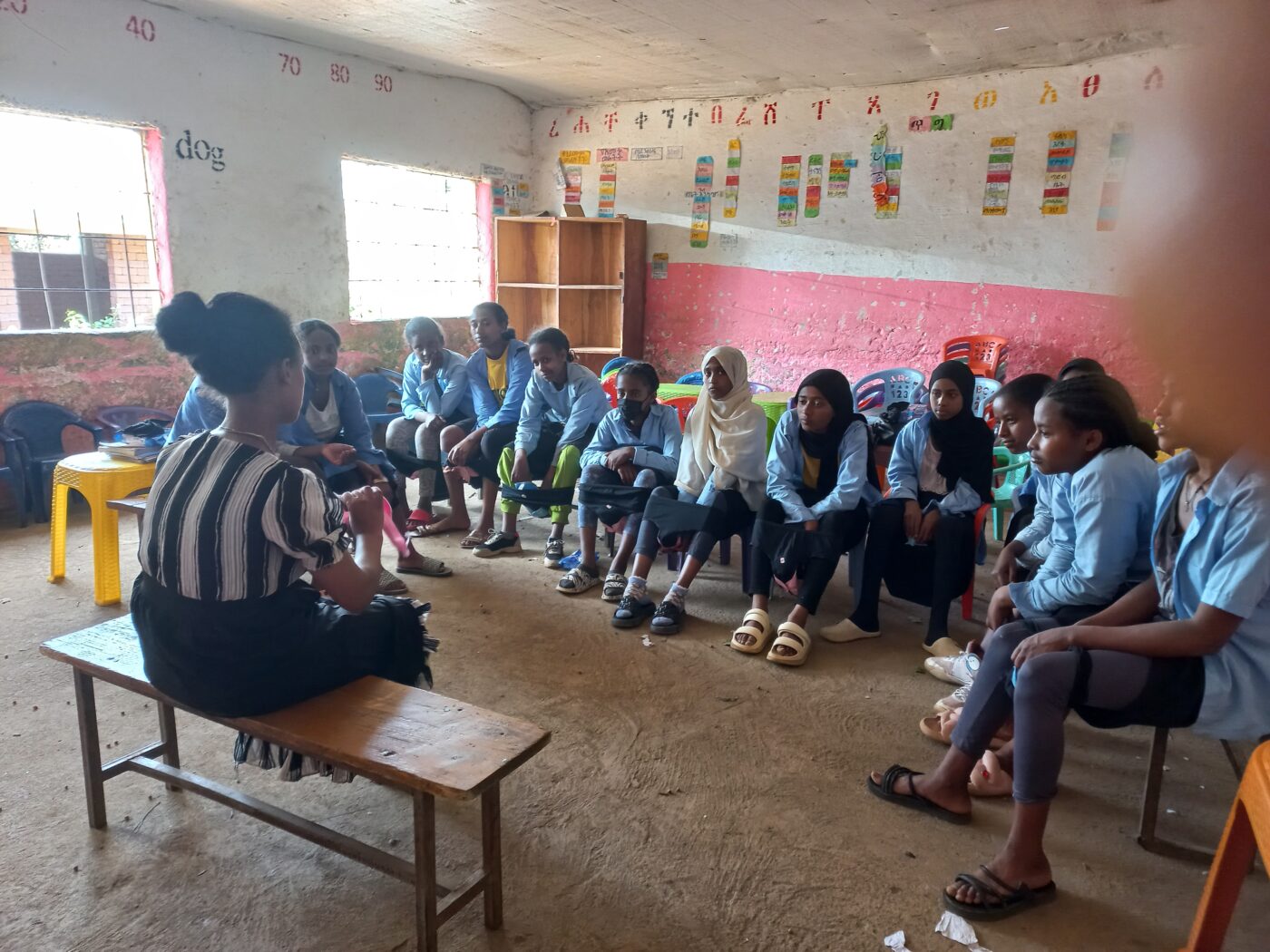What is Future Girls?
Future Girls is our flagship girls’ education programme, bringing together everything we have learned about supporting girls at school and working within school structures to create sustainable, positive change.
The project tackles key barriers that prevent girls from fully benefiting from education. These barriers include menstrual health management, inadequate school sanitation facilities, and gender-based norms that negatively affect well-being, safety, and access. In addition to supporting the girls themselves, we involve boys, teachers, and parents to promote understanding and reduce stigma, fostering a supportive, inclusive school community.
We work with each school for two years, utilising the existing but often inactive Girls’ Clubs that are recommended for all Ethiopian elementary schools. School staff receive training on key topics, which are then discussed with girls and boys in participatory sessions. These sessions encourage students to explore and learn about important gender-related topics. A range of activities takes place outside the club sessions to build student confidence, spread key messages, and improve safeguarding responses at the school.
Between 2023 and 2025, we are working on the second phase of the project at six schools in Amhara and Oromia. We are building on lessons learned from the first phase and have incorporated new elements based on feedback. We are also continuing engagement with schools from the previous phase to support them in maintaining activities beyond our direct intervention.
Our reach so far…
boys and girls directly involved in clubs
teachers and directors trained on key issues
students reached through student-led assemblies
So, what does it involve?
Each project phase begins with collaboration with local education offices to identify schools where the project can have the most impact. We then engage with school directors and leadership to explain our initiative and ensure a shared commitment to creating a sustainable and supportive environment for female students.
From there, we work with the existing Girls’ Club infrastructure through a variety of activities:
- Training for Club Leaders – Most Girls’ Clubs are led by a female teacher who receives little support or resources to facilitate activities. We ensure that each club has both a female and male leader, as engaging boys and men in these discussions is vital for long-term change. Club leaders receive training on facilitation skills to create an inclusive and participatory environment that empowers students. Throughout the two-year project, we provide training on key topics such as social gender norms, puberty, menstruation, child marriage, early pregnancy, peer pressure, and consent.
- Participatory Sessions – After each training, club leaders facilitate sessions with students, creating a safe space for discussion and exploration of these important topics. Sessions include both single-sex and mixed-gender discussions to ensure students feel comfortable asking questions while also learning from different perspectives.
- School Assemblies – Club members share what they learn with the wider student body through monthly school assemblies or on special themed days. Each May, the project supports students in leading a special assembly for Menstrual Hygiene Day. Students present information through dramas, poems, and presentations. Local media is invited to help spread positive messages and combat stigma around menstruation.
- School Improvements – Each school receives a small grant to improve facilities and address barriers to girls’ education. Club members help identify necessary improvements, which often include making girls’ toilets more secure, providing water sources close to toilets, supplying menstrual pads for students in need, and improving girls’ resting rooms.
- Distribution of Reusable Period Packs – To support menstrual health education, we distribute as many reusable period packs as possible to club members and other students. These provide a sustainable menstrual hygiene solution, allowing girls to attend school comfortably and confidently during their periods.
- Signposting to Local Services – Through the project, we connect schools with One Stop Services that provide health, legal, and counselling support for girls and women affected by gender-based violence. With access to the service, as well as training and guidance from our team, school staff are better equipped to respond to safeguarding concerns. Sadly, club activities often lead to disclosures of abuse, but thanks to the project, girls are able to be heard and to access the support they need in a safe and supportive environment.



Progressing to Phase Two
The first phase of Future Girls began in 2021 and worked with six schools over two years. Since September 2023, we have been implementing the second phase at six new schools. Based on lessons from phase one, we have introduced new elements to the programme:
- Sustainable Implementation – The project is designed to integrate into state school systems, ensuring that activities continue beyond our direct involvement. We host two biennial events to maintain engagement with previous phase schools and create a peer network of directors and club leaders. A peer conference for sharing experiences and receiving refresher training, and best-practice visits, where student leaders and club leaders observe successful Girls’ Club activities in other schools. Local education office supervisors also participate in these events to help them support and monitor Girls’ Clubs as part of their routine oversight.
- Development of a Girls’ Club Manual – We are creating a comprehensive manual compiling training materials, participatory methods, and best practices from the project. This guide will help club leaders and students sustain and expand Girls’ Club activities. The manual has been developed with input from students, club leaders, and sector experts and will be available in multiple local languages.
- Student Leaders – Students have shown incredible initiative, passion, and energy for the project. Since club leaders, who are also teachers, often struggle with time constraints, we now train student leaders to support club activities. They participate in topic training sessions, annual conferences, and best-practice visits to ensure their voices are heard and their contributions are valued.
- Parental Engagement – Student feedback has highlighted the importance of involving parents in the Future Girls project. Many challenges that girls face begin at home, making parental engagement crucial for long-term change. While this was planned for this phase, conflict in certain areas prevented it from taking place. However, parents will be invited to the Menstrual Hygiene Day event at the end of this phase to learn about the club’s children’s activities and witness their children’s progress in confidence and knowledge.
A father shared how his daughter, after joining the club, gained the confidence to ask him for sanitary pads—something she had never discussed, even with her mother. Previously, she had been using old clothes to manage her period. “I was surprised, shocked and proud.” He immediately provided the pads she needed.
Looking Ahead
At the end of this phase, an external evaluation will assess the project’s impact on students’ and teachers’ knowledge, attitudes, and confidence regarding gender and girls’ education. The evaluation will also examine the effectiveness of different programme activities and identify areas for further improvement.
At the end of 2025, we will launch the third phase of Future Girls, working with another six schools while continuing to engage with the 12 schools from the first two phases. This ongoing expansion will ensure continuous, sustainable improvements in girls’ education and well-being year after year.
Can you help?
- £ 80 funds club sessions at three schools
- £ 325 funds a regional peer confrence for 6 schools
- £ 3,000 covers all the costs for a school to be involved in the Future Girls programme
